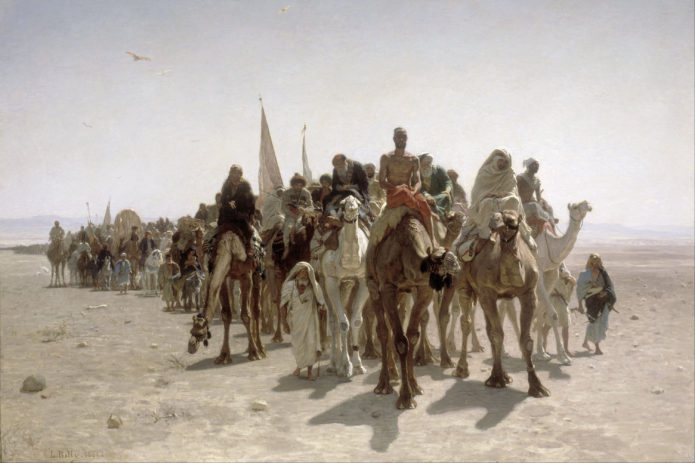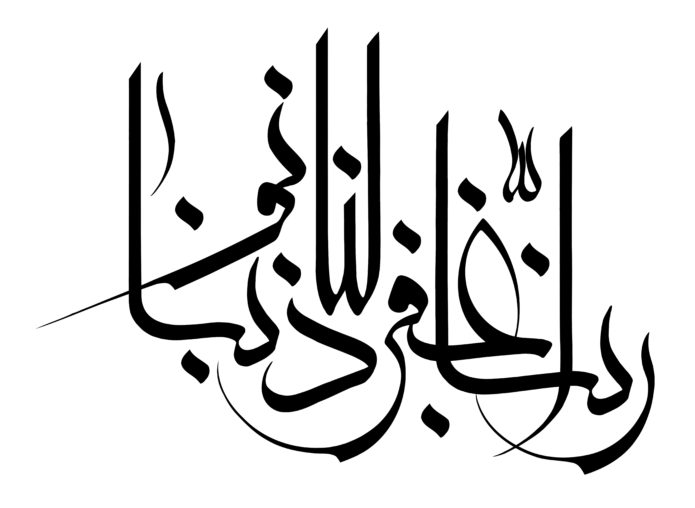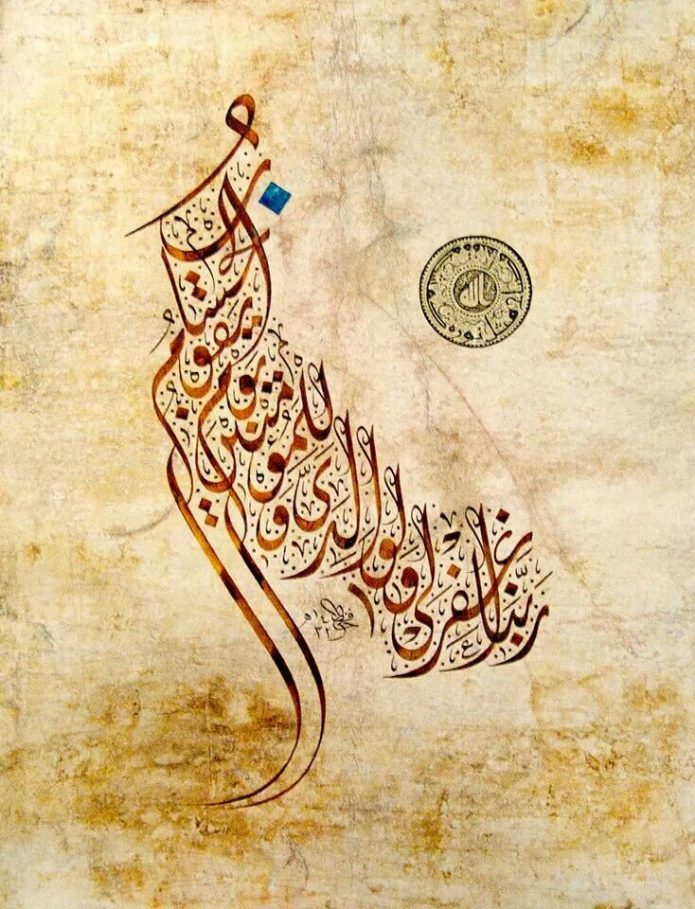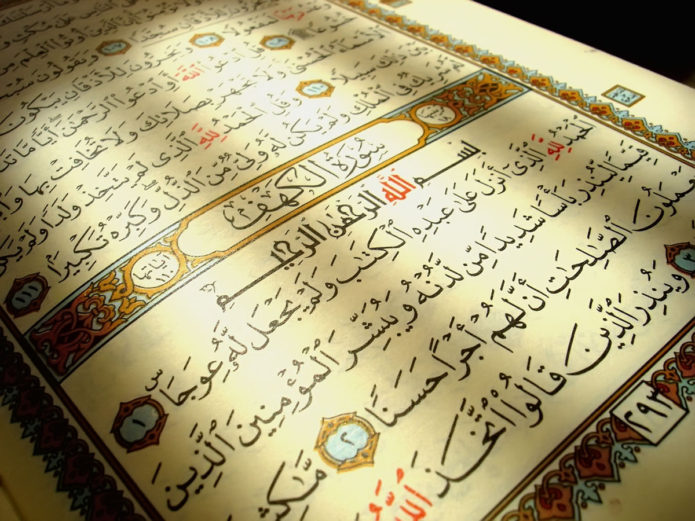Question:
Peace be upon you! I was wondering whether you would be so kind to answer the following question:
‘Say: O People of the Book! Ye have no ground to stand upon unless ye stand fast by the Law, the Gospel and all the revelation that has come to you from your Lord….’ (Surah 5, Al Ma’idah, verse 68)
Based on the above verse and numerous other ones, why do Muslims say the Bible has been corrupted? A comparison between these books as they were available in the sixth century with the ones from today clearly show that there are no changes in the main Christian doctrines.
As a practicing follower of Jesus I do not believe that the Quran is revealed by God. I do not mean to offend you by saying that but if I would believe the Quran to be divine revelation I would cease to be a Christian. However, I do believe that the Quran contains truth like many other books do too. All truth, of course, is God’s truth. Hence I am not unreasonable if I quote what is true from the Quran. I noticed that most Muslims deal with the Bible in the same way.
The following evidence proves that the terms ‘law’ and ‘Gospel’ have been used to refer to the whole Old and New Testament as well, as to the specific books of the ‘law’ and the ‘Gospel’ mentioned therein:
Zabur revealed to Jewish prophet Hazrat Dawud (Al Nisa, 4 verse 163) not mentioned in Ali’Imran, verses 3 and 65; indicates inclusion in Tawrat.
Conclusion supported by hadith, Mishkat Al-Masabih, vol. 2, p. 1237: Ka’b is reported as quoting Tawrat with sayings that find parallels in book of Isaiah. Jesus and his followers used the words, “law” and “prophets” interchangeably to refer to the whole Old Testament.
Compare John 10:34 with Psalm 82:6, 1 Corinthians 14:21 with Isaiah 28:11-12, etc. Various historical documents clearly show that the early church used “Gospel” as title for all or part of New Testament before Islam arrived: Harrison, Introduction to the New Testament, pg. 99, Schaff, A Select Library of Nicene and Post- Nicene Fathers of the Christian Church: First Series. vol. 8, pg. 7; Ignatius (A.D. 115) in “ad Philad.” 5; “ad Smyrn.” 7. B.B. Warfield , The Inspiration and Authority of the Bible, p. 413.
Answer:
Dear friend,
Many thanks for your question which includes inquiries about what the Holy Quran says about the Bible.
Allow me to begin with the same verse you had opened your email, though I’d rather quote the whole verse for a better understanding:
“Say (O Muhammad): O people of the Scripture (Jews and Christians)! You have nothing till you act according to the Torah and the Gospel, and what has (now) been sent down to you from your Lord (i.e. the Quran). Verily, that which has been sent down to you ( Muhammad) from your Lord increases in most of them (their) obstinate rebellion and mischief. So be not sorrowful over the people who disbelieve.” (5:68)
The above verse has the following messages:
It is a response to those Jews and Christians (or even Muslims) who assume that just by merely having a Scripture they can embrace salvation. In reality what matters is practicing our Scripture. Now, there are numbers of issues here:
a. Where is the Gospel of Jesus? The Quran clearly confirms that:
“We sent Jesus son of Mary afterwards, and We gave him the Gospel (Injeel) (57:27).
The term ‘Gospel’ is used in the words quoted from Jesus in the Bible a couple of times. Luke clearly narrates that Jesus used to preach the Gospel, but Christian theologians interpret it in a literal sense (good news). According to the Quran, Gospel was the name of the Scripture revealed to Jesus, similar to Torah, Psalms, Quran etc. It seems the Gospel according to Jesus which is a Godly revelation was destroyed in early years after the ascension of Jesus to heaven. Thus, many authors (according to Luke) put their hands in writing what they could remember from Jesus, and hence many gospels were written. I’m sure you are aware that the present four gospels are not the only written gospels. So for today’s Christians there is no Gospel (of Jesus) to practice it.
b. Do Christians today practice the Torah? The term Torah refers (by the Rabbis and majority of Christian theologians) to the first Five Books of the Old Testament, although there are other scholarly discussions about it. We all know that Christians believe that all the Law is abolished by Jesus, hence there is no Law or Torah for them in a practicing sense. Thus, they consume the flesh of swine freely to mention an example.
It also invites the Jews and Christians to believe and practice the Quran as another revelation sent down to another Messenger of God.
The end of the verse shows that unfortunately many of the people of the Scripture at the time of the revelation of the Quran not only did not believe in the Quran, but they also increased their animosity against it.
– Can a practicing Christian who is following Jesus believe that the Quran is the Word of God?
Why not? Where and when did Jesus Christ say that you should not believe in any more coming Prophet or Messenger of God? Would it be possible that a Messenger of God denies other Messengers of God? According to your logic then the Jews also have a sound argument to deny Jesus as they do. Historically, there has been an ongoing debate between Jews and Christians as each claim that they are the only ones who receive the Grace and will be in Paradise. Let me quote to you what the Quran says on this issue.
“Verily, those who believe, and those are Jews and Christians, and Sabians; whoever believes in God (the Unique God) and the Last Day and does righteous good deeds shall have their reward with their Lord, on them shall be no fear, nor shall they grieve.” You can find this verse in at least two places in the Quran, one is just in the next verse you quoted and another in (Chapter 2, Verse 62).
My friend, don’t you see the mercy of God in the above verse? If it were the words of Muhammad as an ordinary human, he too would call but to himself.
I assume you sort of accept the Quran otherwise you wouldn’t bother to quote from it. Then, this is the Quran quoting from Jesus that he was foretelling about the coming of Ahmad (the second famous name for Prophet Muhammad). Please see Chapter 61, Verse 6.
The Quran while confirming the previous Scriptures (in their original form) contains all their Laws besides extra messages that don’t exist in them.
“And We have sent down to you (O Muhammad) the Book (this Quran) in truth, confirming the Scripture that came before it and encompassing over it (the Scripture). So judge among them by what God has revealed, and follow not their vain desires, diverging away from the truth that has come to you…” (5:48).
Thus, believing in the Quran in comparison to the previous Scriptures is like having number 100 that contains all the previous numbers in it.
– You mentioned that the Quran like other books contains some truth!
My simple question is if the whole truth stays only with God and we have no access to it, then who and how are we going to decide which part of the Quran, the Bible or any other book is true or false?! Your assumption seems nothing less than the fallacy of ‘religious pluralism’. The mercy of God necessitates that there must be a ‘scale’ left for mankind by which they can distinguish the truth from falsehood, or else, the followers of any ‘ism’ can claim (as they do) that they are the only one who tells the truth. Then any quotation that suits their doctrine will also be accepted as part of (their) truth, for it is confirming their so-called truth. This dogma is very misleading for a researcher of truth and if God confirms it, it means He is misleading us. Glory to Him.
– Was Gospel a term for part or all of the New Testament?
Obviously this contradicts what Luke quotes, that Jesus was preaching the Gospel, simply because in his time the New Testament was not compiled. Authors of present Gospels, letters of Paul, etc. were written after Jesus. Besides, as mentioned earlier the Quran explicitly mentions that ‘Gospel’ was the name of the Scripture that God had revealed to Jesus. Obviously, no one claims that the present New Testament is God’s revelation to Jesus.
That’s all I could share with you in this short time and if you are interested to know the Quran’s point of view about Holy Jesus and his virgin Mary, please see my article ‘The True Story of Jesus’ on our website: http://www.ihic.org.au/book.php?id=6&idt=2
May God bless you,
Sheikh Mansour Leghaei






